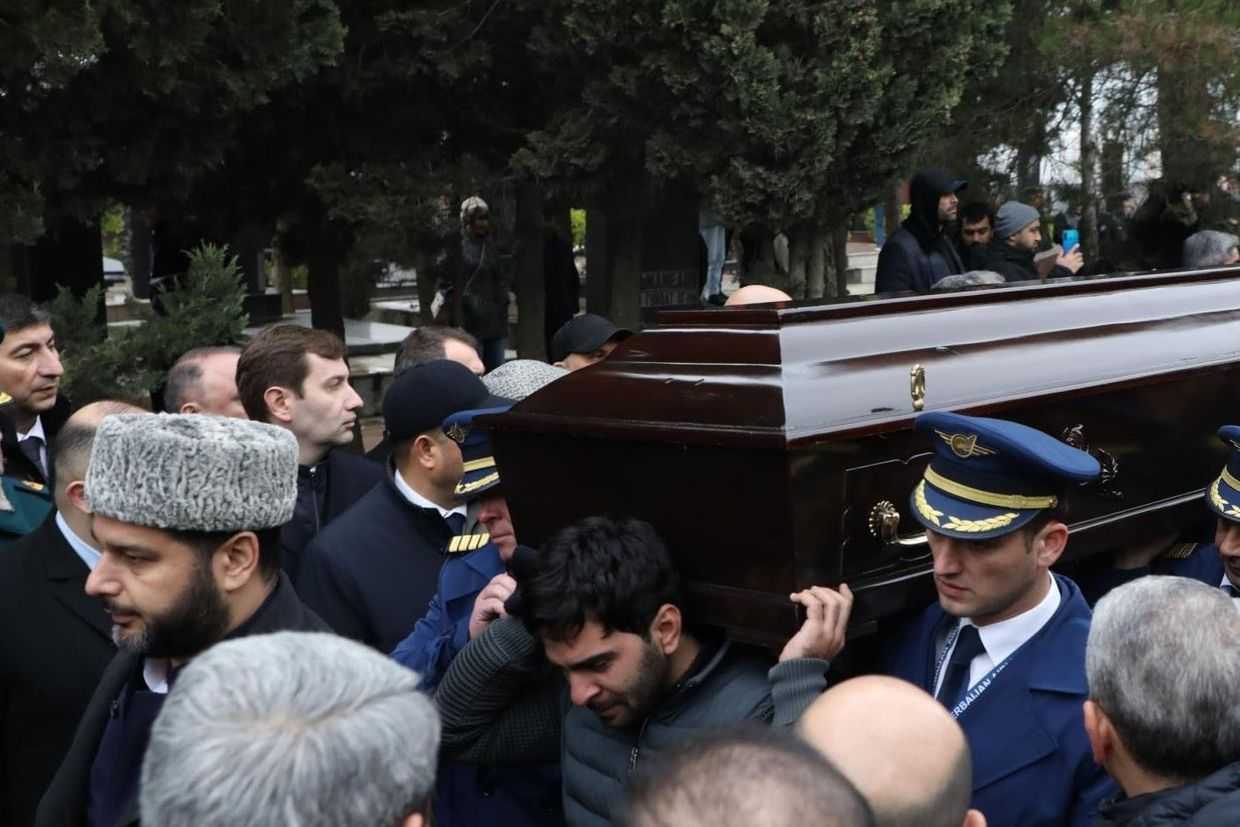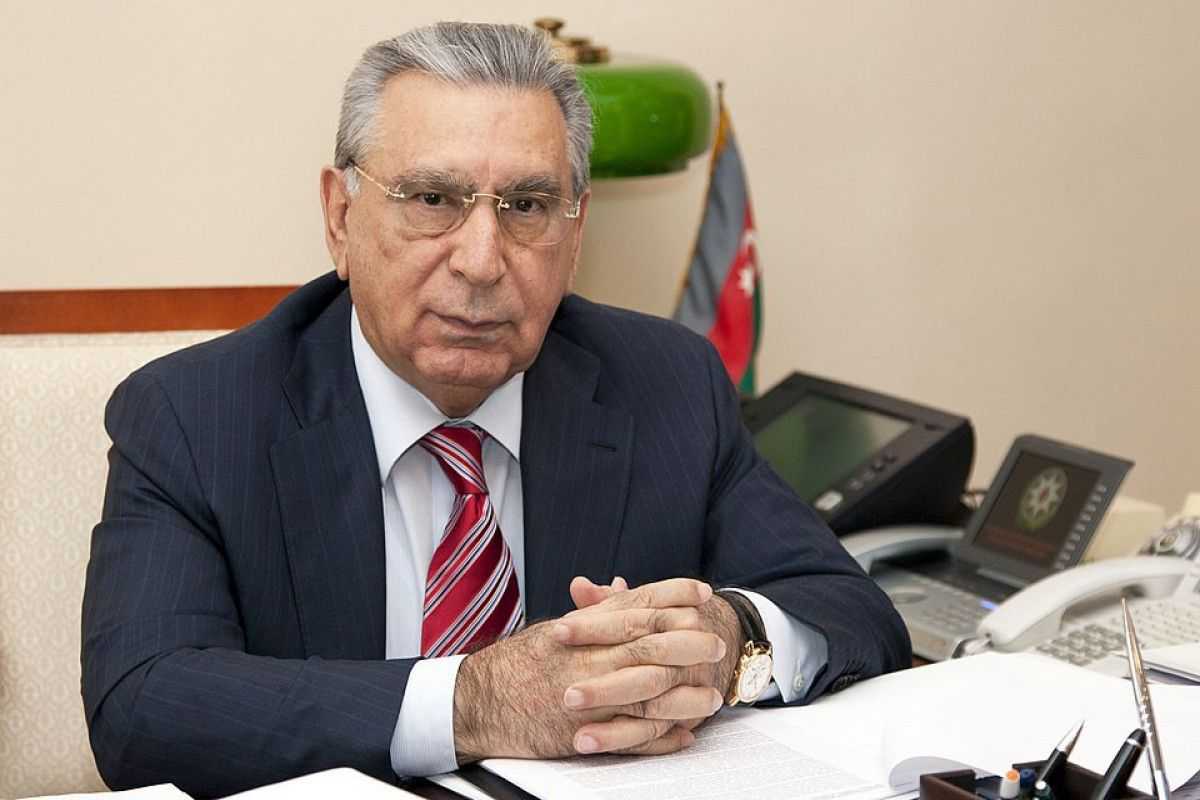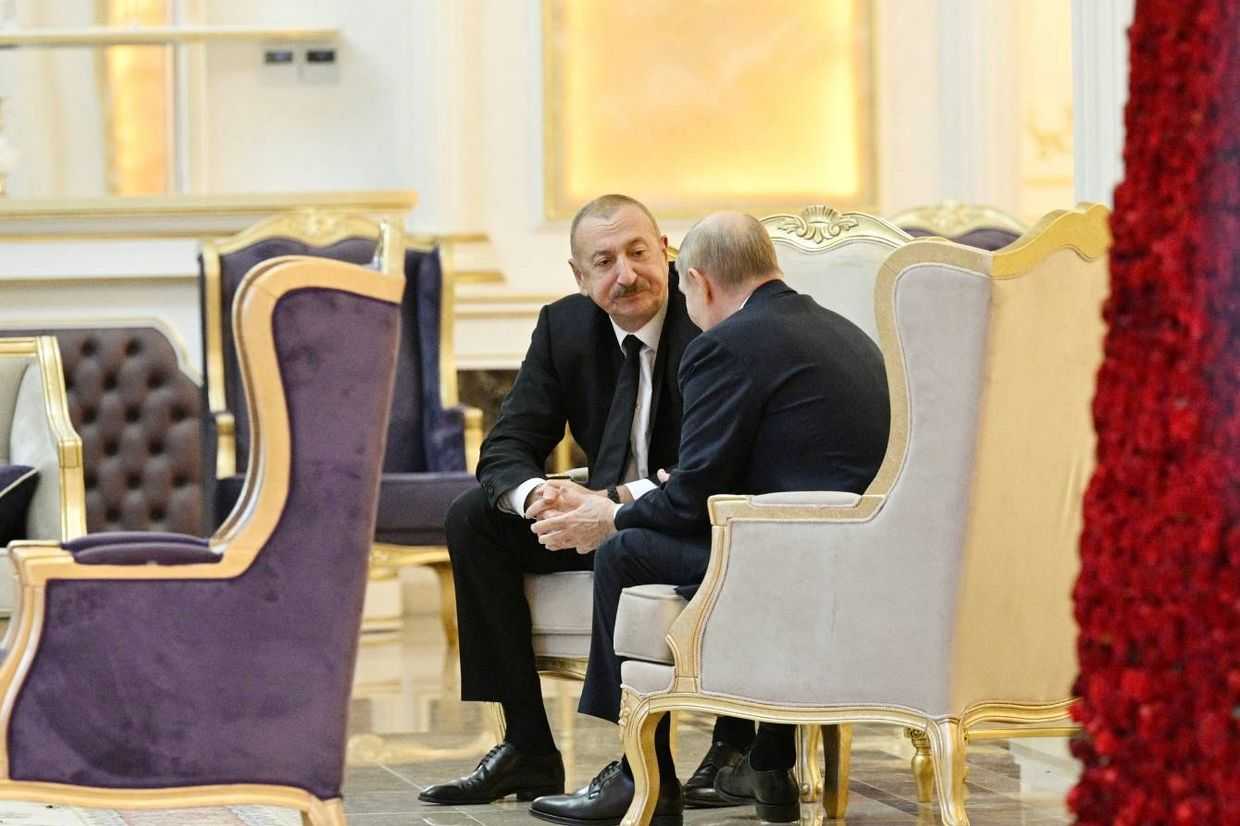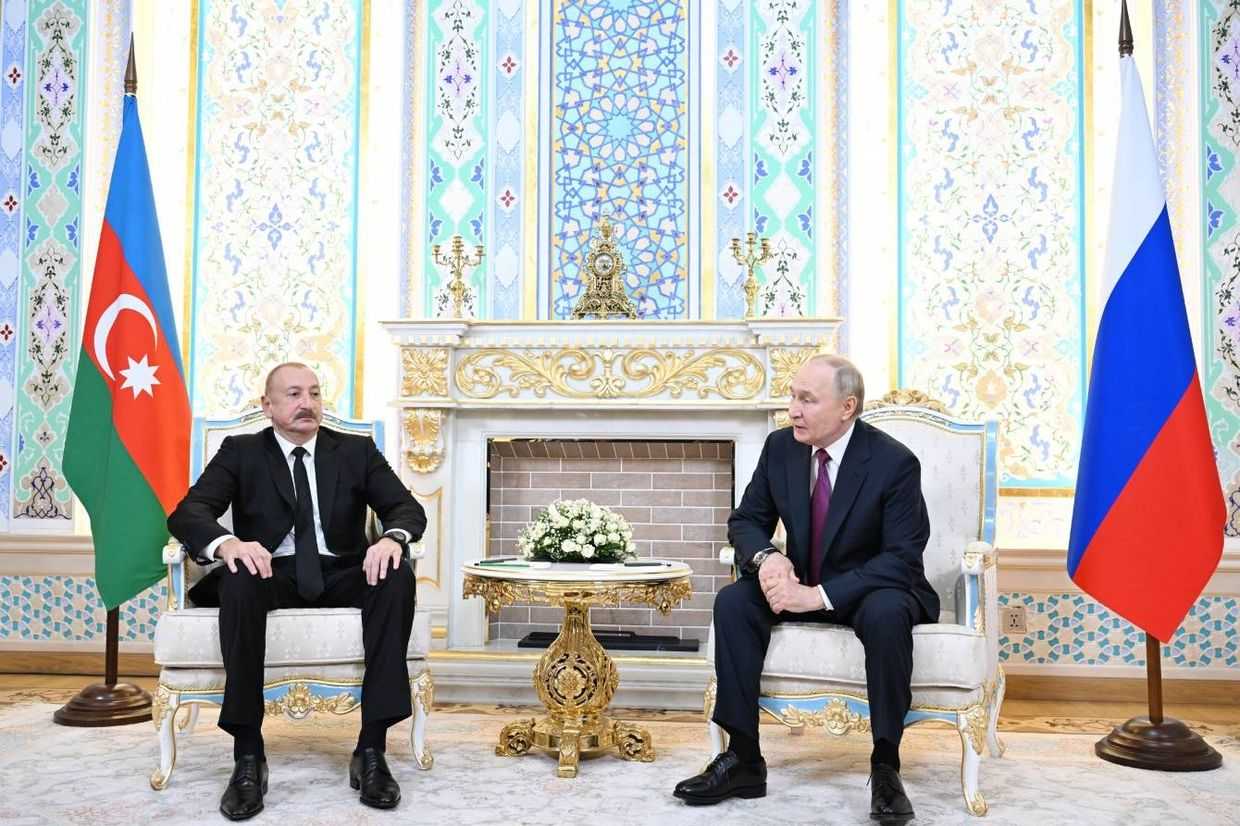
After the Azerbaijani government leaked its accusation that a Russian air defence missile was responsible for Wednesday’s deadly plane crash, officials have begun to publicly call for Russia to apologise and pay reparations.
Rasim Musabayov, an Azerbaijani MP, told independent Azerbaijani media outlet Turan that on Friday that ‘the Russian side must apologise for the air defence attack on a Azerbaijani civilian aircraft’.
‘The aircraft was shot down on Russian territory, in the skies over Grozny. And it is impossible to deny this’, Musabayov said, adding that some people in Russia are trying to cover up Russia’s responsibility for the disaster.
‘Those who did this should be held criminally liable, compensation must be paid for the deaths and victims. If this does not happen, then the relations will flow into another plane’, Musabayov said.
He noted that when a Russian military helicopter was shot down during the 44-day war in 2020, the Azerbaijani side apologised and stated that those responsible would be held accountable. Azerbaijan also paid compensation to the victims.
‘These are civilised relations. If the air defence is working, then the airport should be closed, and a notice should be given so that no one can fly here. Therefore, those responsible should be held accountable’, Musabayov said.
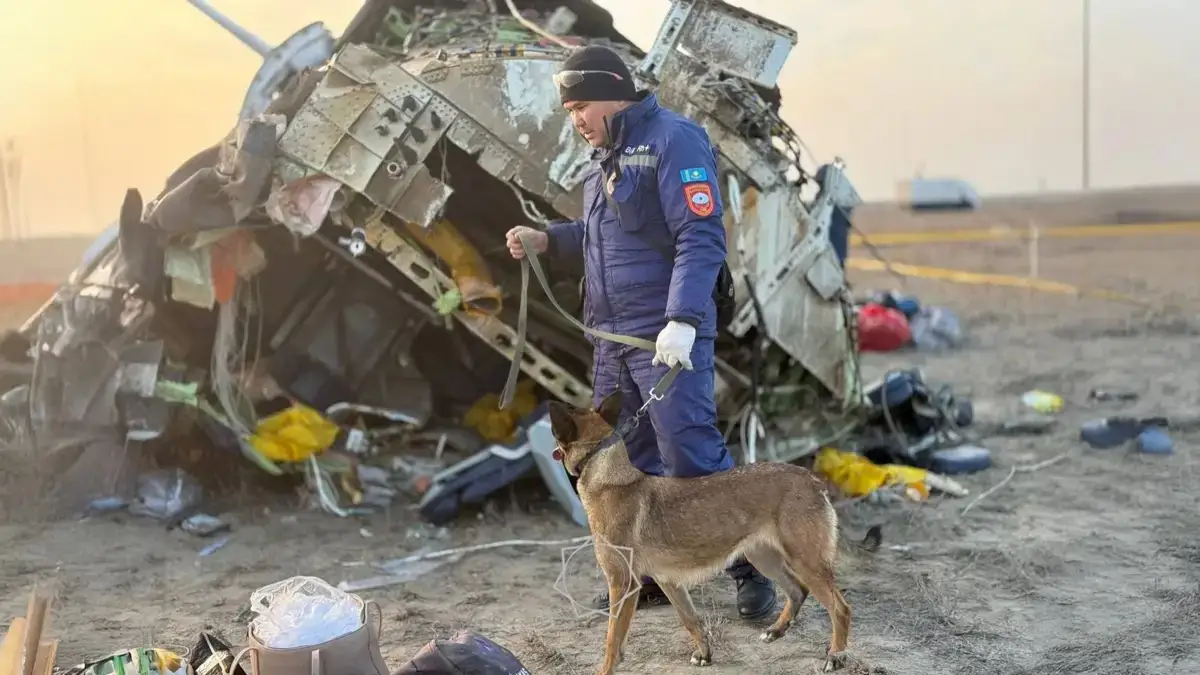
Russia has so far remained tight-lipped about the disaster and has stuck to the initial explanation, that the plane struck a flock of birds, which ultimately caused it to crash.
Even after most Western news outlets carried the Azerbaijani accusations originally printed in Euronews on Thursday, they did not appear in Russian state-run or controlled media outlets. The assertion that Russia was responsible was also not carried in Kazakh state-run media.
It was only on Friday that a passing reference to Musabayov’s call for a Russian apology was shared by the state-run media outlet TASS, which cited Kremlin press secretary Dmitry Peskov as having acknowledged that he was aware of the accusation.
Peskov said he would not comment on any theorising until the investigation was concluded, and when asked for a follow-up comment on Musabayov’s accusation, said, ‘I have nothing to add to what I have already said’.
Nonetheless, TASS shared earlier on 26 December another theory espoused by Kazakh Transport Minister Marat Karabaev, who said an oxygen cylinder had exploded on the flight, implying it could have been connected to the crash.
Earlier on Friday, the Kazakh Transport Ministry said the information about the alleged oxygen cylinder explosion had been conveyed to officials at the Aktau airport from the flight control office in the Russian city of Rostov.
Following this, Azerbaijan Airlines (AZAL) issued its own statement on the crash, saying that preliminary results of the investigation indicated it was caused by ‘physical and technical external interference’.
TASS then shared a video message from Dmitry Yadorov, the head of Russia's Federal Air Transport Agency, who acknowledged air defence was active at the time the plane was approaching Grozny, which led to the imposition of a restricted airspace regime.
Yadorov then claimed the plane was ‘offered other airports’, but instead chose to fly to Aktau. He did not specifiy which other airports were offered.
Airlines begin to suspend flights across Russian airspace
On Wednesday, AZAL flight J2-8243 from Baku to Grozny crashed near Aktau, Kazakhstan. On the same day, Azerbaijani President Ilham Aliyev also flew to St. Petersburg for a conference of the Commonwealth of Independent States (CIS). However, Aliyev turned back mid-flight after the news of the crash broke, and said he was postponing further trips until the investigation was concluded.
‘This morning, I was flying from Baku to St. Petersburg to attend the CIS Summit when I was informed of this tragic incident during the flight. I immediately gave instructions for the plane to return to Baku’, Aliyev said at a press conference at Baku airport upon his arrival.
At the time, Aliyev said ‘there are various theories’, but added that he believed ‘it is premature to discuss them’.
The following day, anonymous Azerbaijani officials confirmed to Euronews and Reuters that they believed the jet had been struck by a Russian air defence missile as it approached Chechnya, which resulted in its ultimate crash landing in Kazakhstan.
On Thursday, Israel’s state airline El Al, one of the few international carriers still flying to Russia following Russia’s full-scale invasion of Ukraine, announced that it was also temporarily suspending flights from Tel Aviv to Moscow.
On Friday, an AZAL flight from Baku to the Russian city of Mineralnye Vody was turned back immediately after takeoff from Azerbaijan after being informed that the airspace over Daghestan was closed. According to media reports, starting on 28 December, AZAL also suspended flights to Mineralnye Vody entirely, as well as to Sochi, Volgograd, Ufa, and Samara.
Kazakhstan’s national airline Qazaq Air has also announced the suspension of flights betweeen Astana and Yekaterinburg until 27 January 2025 citing the results of an ongoing risk assessment of flights to Russia, the Kazinform News Agency reported, quoting the company’s press service. The airline will continue to operate flights to Omsk and Novosibirsk.
Officially, the Russian airline company Utair is continuing to operate flights between Baku and Grozny, but tickets appear to be unavailable for flights in the coming week.




